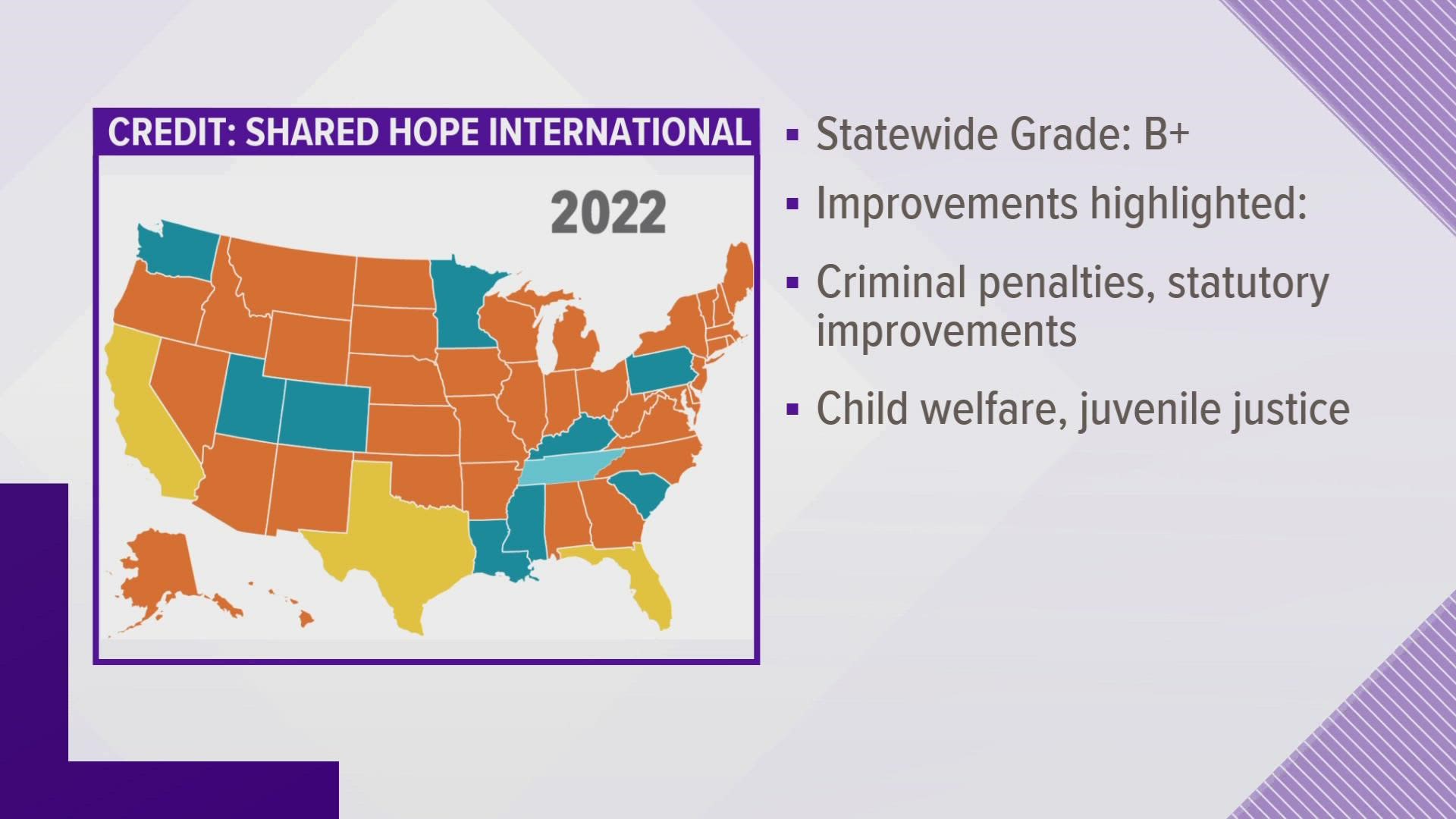NASHVILLE, Tenn. — Tennessee ranked top in the nation on a new report from international, Christian nonprofit Shared Hope which, works to prevent sex trafficking while also advocating for survivors and helping them heal.
The state was given a 'B' grade overall after the organization evaluated six components of sex trafficking advocacy and prevention. They are listed below.
- Criminal Provisions - A
- Identification of and Response to Surviors - C
- Continuum of Care - F
- Access to Justice for Trafficking Survivors - C
- Tools for a Survivor-Centered Criminal Justice Response - F
- Prevention and Training - B
The report said that Tennessee was among the best at making sure that child sex trafficking laws explicitly hold buyers accountable, and they specifically criminalize buying or soliciting sex with minors. The state is also among the best for crafting laws that apply to traffickers, while also protecting minors, according to the report card.
The laws also do not protect people who claim they mistook the age of a minor, according to the report. However, they said there is still a gap in laws that hold businesses liable for child sex trafficking.
They said Tennessee did not provide many tools for a survivor-centered criminal justice process. They said that there were gaps for hearsay exceptions, survivor support and privileged communications. However, they said there were alternatives available if survivors could not give testimony in court.
Prevention and training was the state's second-best category, and the nonprofit said the state adequately trained organizations on how to spot child sex trafficking and help survivors. They also said the state adequately showed people how to prevent sex trafficking in schools, but there were still gaps related to training for law enforcement workers.
“We’ve come a long way, but we’ve still got work to do. That’s why we continue to innovate in our approach to investigating trafficking, support and train local law agencies, and partner with every stakeholder we can in this vital work," said David Rausch, the director of the TBI.



